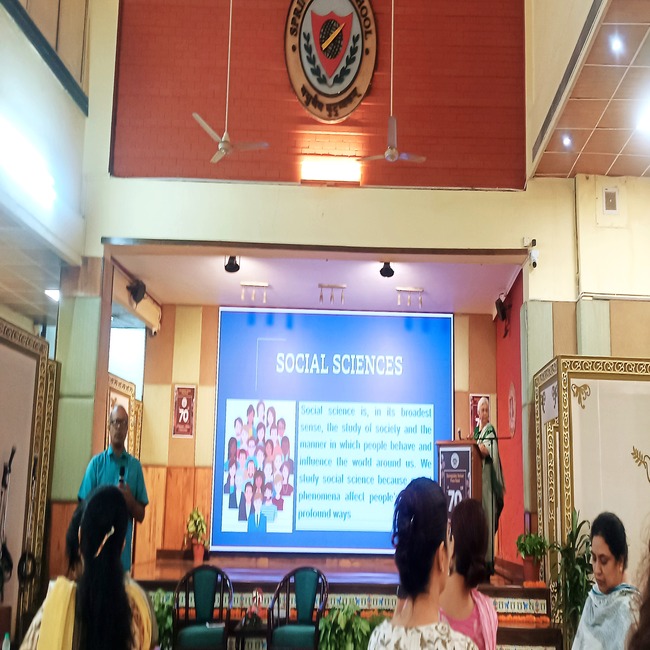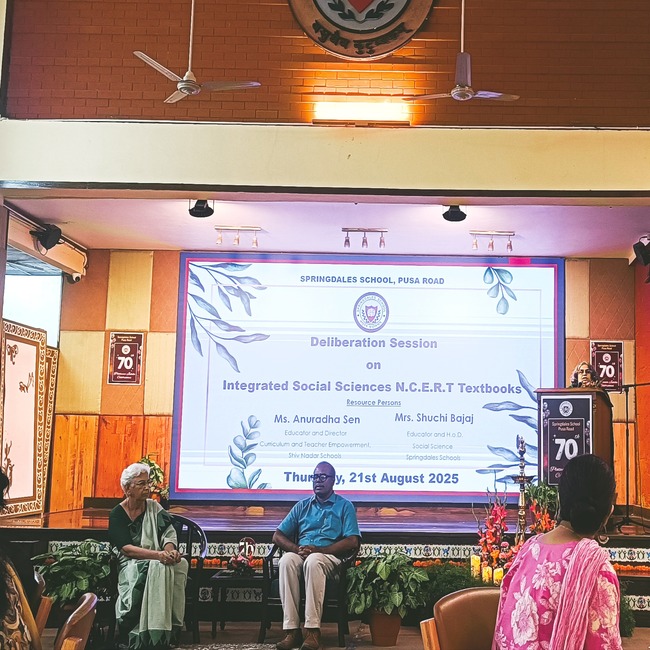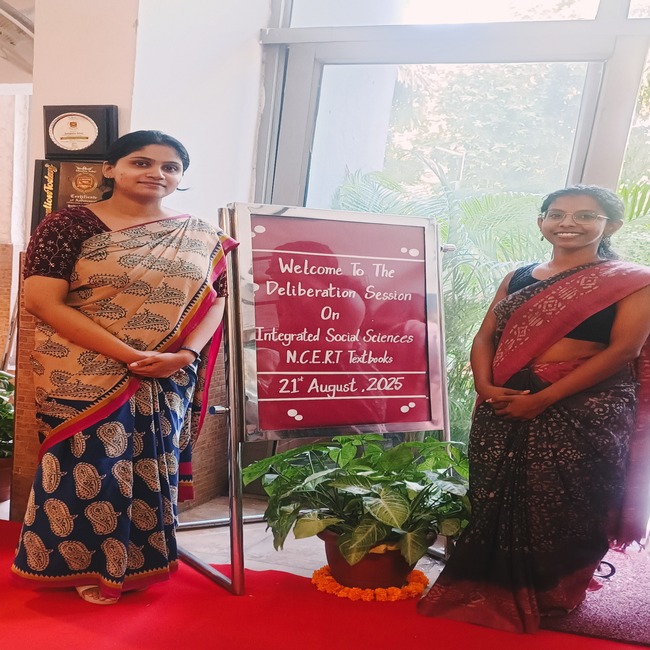Teacher workshop to deliberate upon the new integrated social science textbooks
A deliberation session on the integrated social science NCERT textbooks was held at Springdales School, Pusa Road, on 21 August 2025. Representing our social science faculty, Ms Julie Annam Raj and Ms Naina Rose Thomas participated in the event, which also drew 40 educators from schools across Delhi-NCR, fostering a vibrant and wide-ranging exchange of ideas.
The session was moderated by Professor M.V. Srinivasan, professor of economics, Department of Education in Social Science, and head of the Publication Division, NCERT. The panel featured Ms Anuradha Sen, director of curriculum and teacher empowerment at Shiv Nadar School, and Ms Shuchi Bajaj, head of the social science department at Springdales School.
The programme commenced with a welcome address and the introduction of resource persons, followed by Professor Srinivasan’s overview of the session’s objectives. Its core aim was to engage educators in a critical dialogue on the design, content, and pedagogical intent of the integrated textbooks.
A structured discussion followed, beginning with a query session led by participating teachers. Key concerns raised included the decision-making process in textbook development—particularly theme selection, terminology, and interdisciplinary integration; the shift in historical focus, with greater emphasis on political history over social narratives; the treatment of chronology, illustrated through examples such as the Subsidiary Alliance and Doctrine of Lapse; and the sourcing of visual material, with questions regarding the reliance on Wikipedia images despite the availability of archival resources.
In response, the resource persons offered comprehensive insights, affirming that textbook development is a dynamic and iterative process. They emphasised the importance of balancing curricular goals, inclusivity, and classroom feasibility, and clarified that terminology is selected with care to ensure both sensitivity and global relevance. The concept of the “dynamic text” was reiterated, underscoring that textbooks are subject to revision in response to evolving academic and societal contexts.
The panel commended the integrated approach, noting that while certain aspects may warrant further refinement, the revised format encourages meaningful interdisciplinary connections and promotes more critical, holistic engagement with social realities.
The session also underscored the importance of sustained dialogue between educators and curriculum developers in shaping impactful learning experiences. Teachers’ classroom insights were recognised as vital in evaluating the strengths and limitations of new materials. The resource persons stressed the need to embed textbooks within broader pedagogical frameworks, cautioning against their use as stand-alone instructional tools. The deliberations reflected a shared commitment to ensuring that curricular resources remain academically rigorous and responsive to the evolving needs of learners.
The session proved both informative and inspiring. It deepened the participants understanding of integrated textbook design, broadened their perspectives on inclusive pedagogy, and strengthened their confidence to contribute meaningfully to curriculum conversations.















